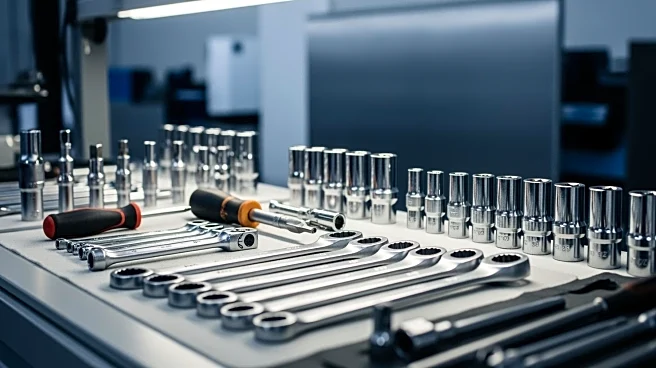What's Happening?
The Institute of the Motor Industry (IMI) is advocating for significant fiscal reforms to acknowledge the contributions of the 724,000 individuals working in the automotive sector beyond factory gates.
The IMI emphasizes the need for changes in the Apprenticeship Levy, industrial investment, and safety competence frameworks to safeguard workers and consumers. Nick Connor, CEO of IMI, highlights the importance of government investment extending beyond manufacturing facilities to include those who maintain vehicles and ensure consumer safety. The IMI's pre-budget submission to HM Treasury calls for a flexible Apprenticeship Levy to facilitate investment in apprenticeships, modular upskilling, and safety-critical training. Additionally, the IMI proposes the establishment of an Automotive Workforce Transition Fund to support various roles within the automotive industry, including technical, leadership, digital, diagnostic, logistics, and customer-facing positions.
Why It's Important?
The IMI's call for fiscal reforms is crucial for the automotive industry's growth and sustainability. By advocating for a flexible Apprenticeship Levy and the creation of an Automotive Workforce Transition Fund, the IMI aims to unlock private investment, enhance productivity, and alleviate long-term fiscal pressures on the government. These reforms are designed to ensure that the entire automotive workforce, not just those within manufacturing, receive the necessary training and support to adapt to evolving technologies such as electric, hydrogen, and ADAS systems. The IMI's initiative seeks to embed the TechSafe standard within skills funding and procurement frameworks, thereby ensuring consistent national safety standards and bolstering public confidence in new vehicle technologies.
What's Next?
The IMI is urging HM Treasury to collaborate with employers in co-investing in training aligned with the IMI TechSafe standard. This partnership aims to establish a national benchmark for competence in emerging automotive technologies. The IMI also calls for a reassessment of recent Employer Car Ownership Scheme (ECOS) tax changes, which could impact the automotive workforce. As the government considers these proposals, the automotive industry may see increased investment in workforce development and safety standards, potentially leading to enhanced consumer protection and industry growth.
Beyond the Headlines
The IMI's advocacy for fiscal reforms highlights broader implications for the automotive industry, including ethical considerations in workforce training and safety standards. By prioritizing comprehensive training and investment beyond manufacturing, the IMI addresses the need for equitable support across all roles within the industry. This approach not only strengthens public trust in new technologies but also aligns with national net-zero ambitions by ensuring that the workforce is equipped to handle environmentally sustainable vehicle technologies.









